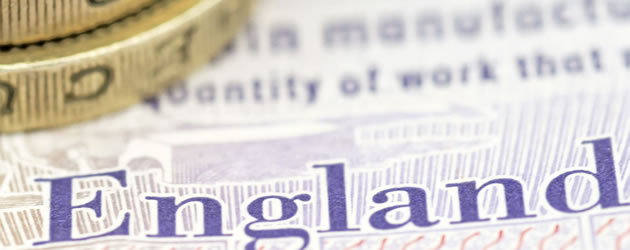
Sterling advanced by just over half a cent against the Euro yesterday as the latest policy statement from ECB President Mario Draghi struck a decidedly dovish tone. At 1.1893, yesterday’s high marked the best rate of exchange since May 6th.
The ECB maintained its record low benchmark interest rate of 0.50%, but Draghi poured cold water over the single currency by mentioning that members of the ominously named Governing Council had discussed cutting rates at this juncture. He also commented that “downside risks” still remain to the Eurozone economy, despite the recent improvements in PMI and GDP data.
The Pound to Euro exchange rate hit a 4-month high as analysts became increasingly concerned that the European Central Bank could be tempted into cutting rates before the end of the year in order to protect the currency bloc from the adverse effects of the probable Fed taper. When the Fed finally decides to wind down its quantitative easing scheme it is widely expected that the diminution of cheap money will lead to higher market rates in the Eurozone and, to combat this potentially revival de-railing scenario, some market-players now expect the ECB to act by reducing its benchmark interest rate. Naturally, this kind of dovish speculation is damaging to the Euro.
The Pound rallied against most of the majors yesterday as the Bank of England did what it had to and maintained the current benchmark interest rate and quantitative easing target. Considering that the BoE has committed itself to a prolonged period of ultra-low interest rates, the 0.50% was never really in question. Similarly, the £375 billion asset purchasing target was always going to be upheld in light of the recent uptick in UK economic data.
However, with markets increasingly opting to price-in an interest rate hike before the end of 2015, a year earlier than the BoE currently intends to raise rates, some traders were cheered by the fact that Governor Mark Carney and co. decided not to try and temper market optimism with another dovish policy statement. The omission of a statement was seen to suggest that the UK Central Bank is coming to terms with the burgeoning argument for an earlier-than-anticipated rate hike. Accordingly, UK 10-year government Gilt yields surpassed the 3.0% mark for the first time in over 2 years.
GBP/EUR is currently teetering on the edge of a 7-month high and, if the US Non-farm Payroll report prints positively, Sterling could potentially reach a new peak between 1.1900-1.2000 later on today as Fed taper speculation dampens global risk appetite.
The US NFP report is expected to come in at 180,000, which should prove supportive of the taper, but any score north of 180K could have a profound Dollar-positive, Euro-negative, impact.

Comments are closed.